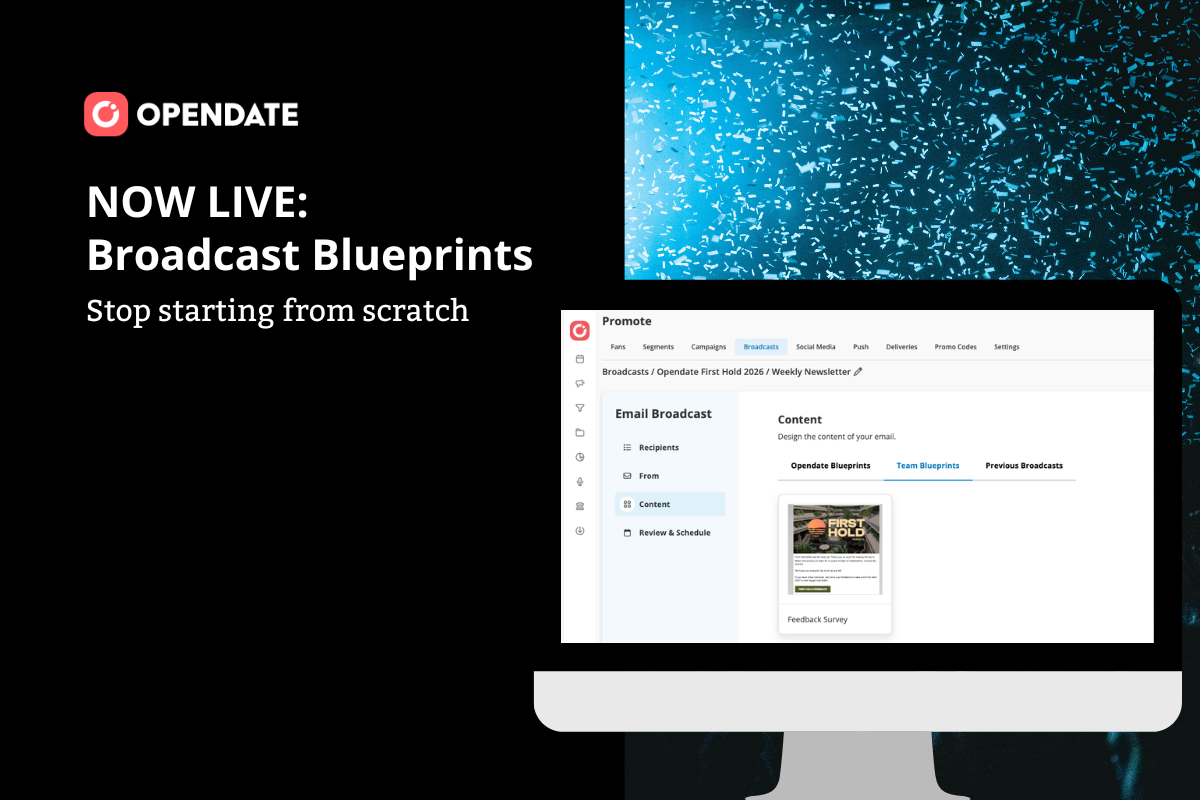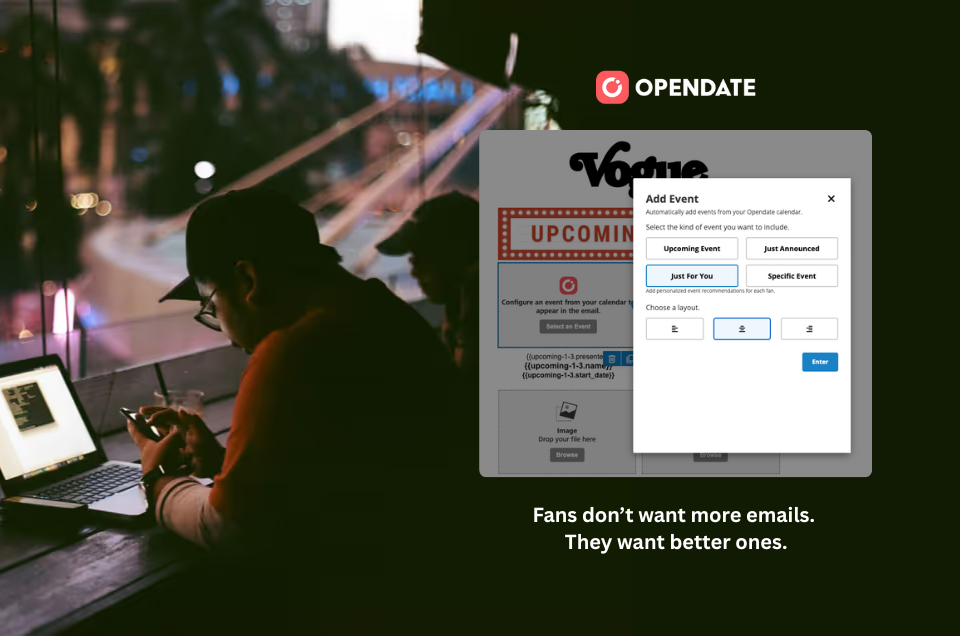.avif)
You just locked in a great show. The calendar’s updated, the offer is signed, and now it’s time to start promoting. But wait… where’s the image? Has the artist shared the announce? Did anyone remember to pull a list of past buyers who’d love this one?
Sound familiar?
For many venues and promoters, marketing kicks off after the show is built. Lately, though, more folks are asking the same question: what if the promo plan started sooner?
With show costs rising and fan behavior shifting, there's more pressure than ever to make every marketing dollar count. Starting earlier doesn't mean doing more work. It means doing the right work at the right time.
Here’s how some independent venues are setting things up early and seeing better results once the show goes live.
When promo is treated as a final step instead of something baked into the process, it causes friction. Teams scramble for assets, miss key timing windows, or rely on one-size-fits-all blasts because there wasn't enough time to segment.
This kind of reactive marketing eats up time and budget. And with fans buying later and engaging across more platforms, the margin for error keeps shrinking.
Starting earlier can:
You don’t need a bigger team or fancy systems to do this. These are simple habits we’ve seen work at real venues with real constraints.
Even a quick heads-up can help. Share the artist’s genre, support acts, and any context around the routing or offer. That’s often enough to start thinking about audience targeting and potential angles.
Avoid the scramble by setting a standard. Create a standard list of what’s needed from artists and agents: photos, links, bios, and anything that makes the show unique. Use one central place to track what’s in and what’s missing.
Sending every announce to your full list causes list fatigue. If you’re not automatically segmenting your CRM, you’re already behind! Promote to the people who’ve bought similar shows, clicked on that genre, or are local to the artist’s hometown. Better targeting means better returns.
Every show is different, but a simple checklist helps. The venues we work with use a shared flow that includes the announce post, email send, paid boost, artist share, and a final push. It keeps everyone on the same page and prevents things from falling through the cracks.
Find a way to mark the point where booking ends and marketing begins. It might be a weekly team sync or a status tag in your booking system. Whatever the format, it helps your team work faster and avoid confusion later.
Marketing isn't something to tack on once the booking work is done. When the plan starts earlier, everything runs more smoothly. You waste less time, avoid last-minute stress, and see better results from the same budget.
We dug into what strong promo plans actually look like in our June Make More Money webinar:
Maximize Every Marketing Dollar: Building the Ultimate Show Promo Plan

